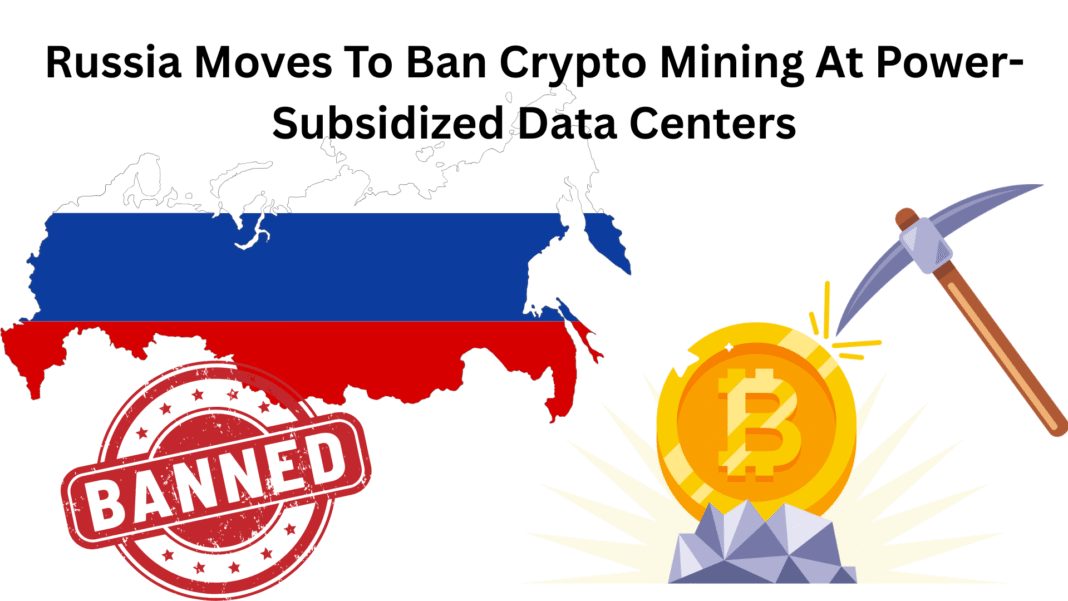In a recent move, the Russian Government in Moscow is planning to it would block data centres from mining cryptocurrencies if they are found to use power at a reduced rate. This draft law was first read in the State Duma in 2022 and is now again being revised by officials and lawmakers.
The plan behind this move is to take out mining from facilities that get special electricity benefits. By doing this, only true communication data centres can claim those savings.
The supporters say that this change will protect public funds and keep digital infrastructure focused on its main task.
New Rules for Data Centres
Under the latest proposal, data centres will be officially classed as communication hubs. They will need to register with the Ministry of Digital Development to qualify for lower electricity charges.
Any centre that registers must not host mining rigs or mine coins on site. Owners can join the register by choice, but once in, mining must stop. The law spells out that a data centre means a group of buildings or rooms fitted for storing and processing data.
Also Read: Russian Crypto Influencer Sentenced to 7 Years for Orchestrating $23M Bitcoin Pyramid Scheme
Aim to Curb Subsidised Mining
Officials want to stop firms from using cheap power meant for digital services to mine crypto. Mining uses huge amounts of electricity and drives up costs for true data services.
Making the register voluntary lets centres that do real data work keep their benefits. Those who mix in mining would lose the right to cheap power.
Lawmakers say this will ensure public funds go to the right places and help Russia build a secure tech base.
Industry Seeks Clarity
Mining experts and data centre operators have already given mixed views. Artem Shchepinov of Intelion GR calls the bill a welcome step toward Russia’s tech freedom and a way to strengthen rules around data infrastructure.
He notes that centres like Intelion’s in Samara can handle mining and AI work side by side. Meanwhile, blockchain analyst Oleg Ogienko says the draft was not shared on the government’s public feedback site. He worries that this cuts out a full discussion with businesses and citizens.
Impact on Crypto Miners
If the law passes as is, traditional data centres and large mining farms could both feel the pinch.
Classic centres that add a few mining rigs to test loads or use space will have to choose between mining and logging in as communication hubs. Those in the register cannot mine.
On the other hand, big miners running their data halls cannot meet the strict reliability rules of state-backed centres. They would not get the special tariffs either. This could raise their power costs and shrink their profit margins.
A Push for Fair Play
Supporters say the law is fair and stops misuse of state aid. It prevents firms from dressing up as data centres to mine crypto on the cheap.
Critics warn of lost jobs and slower growth in parts of the tech field. Yet backers insist that clear rules will help honest operators, bring more oversight and give the state better tools to back true data services.


